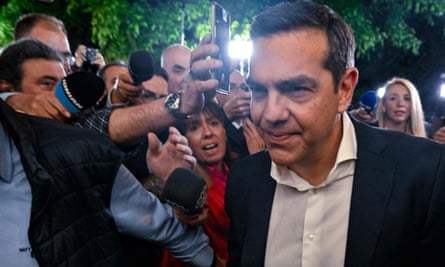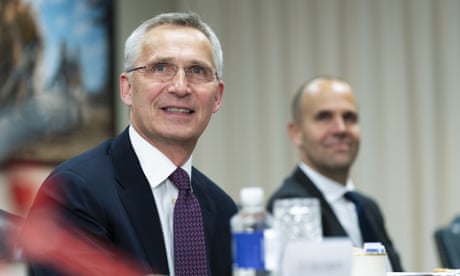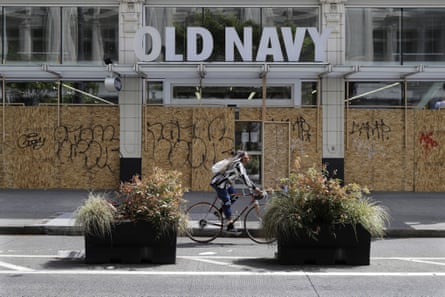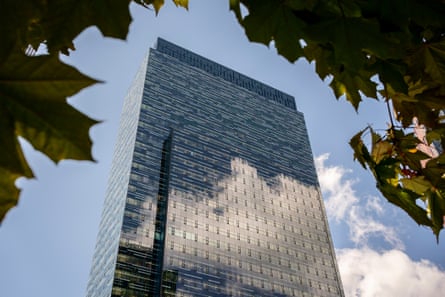ALBERTA ELECTION
Why prominent Alberta conservatives are supporting Rachel Notley’s NDP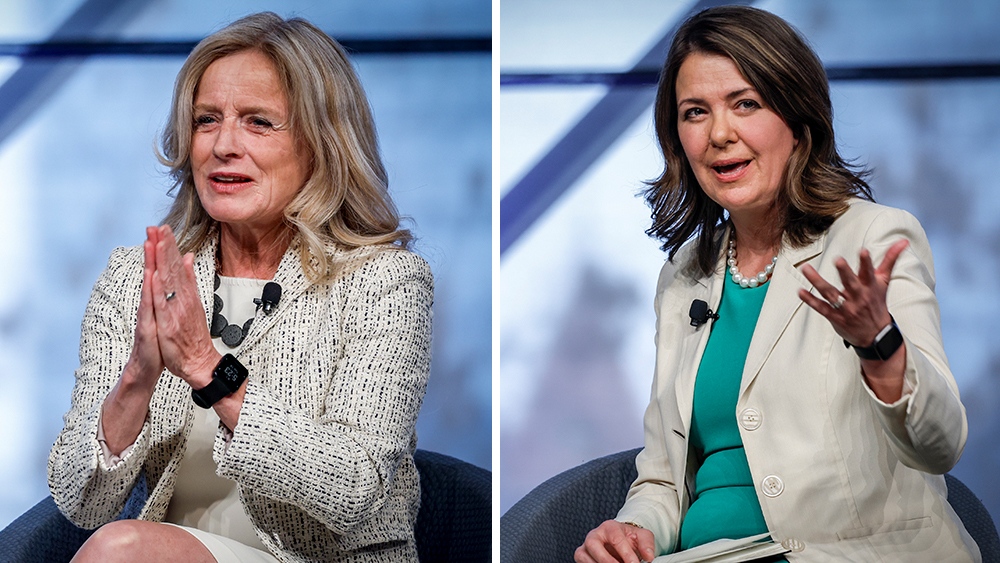
A combination photo of Alberta NDP Leader Rachel Notley, left, and Alberta Premier Danielle Smith as they speak at an economic forum in Calgary, Alta., Tuesday, April 18, 2023. (THE CANADIAN PRESS/Jeff McIntosh)
Moderate Alberta conservatives don’t recognize the party they were once so proud of under Danielle Smith’s leadership.
By Gillian Steward
By Gillian Steward
Contributing Columnist
Tue., May 16, 2023
Tue., May 16, 2023
TORONTO STAR
I have lived in Alberta for a long time, through many elections — most of them easy conservative wins.
Conservatives were so sure of themselves they barely paid attention to opposition parties nipping at their heels. But this election is different. So different that some of those once confident conservatives are denouncing United Conservative Party (UPC) Leader Danielle Smith’s version of right-wing politics; some are even urging Albertans to vote for Rachel Notley’s NDP.
Take for example former Progressive Conservative MP Lee Richardson, a true blue conservative for decades. Before being elected as a Progressive Conservative MP he worked in Premier Peter Lougheed’s office. He was principal secretary to PC premier Alison Redford. But this year he organized a fundraiser for the NDP candidate in his constituency. Among those attending was Ron Ghitter, former Lougheed cabinet minister and PC Senator appointed by Prime Minister Brian Mulroney.
Tom Lukaszuk, another former PC cabinet minister, has been urging Albertans to vote NDP for months.
Ken Boessenkool, a well known Conservative strategist — he has worked with Preston Manning, Ralph Klein, Stephen Harper and Stockwell Day — told a Calgary Herald columnist that Smith “represents things that are not conservative. She represents things that will ultimately harm the party.”
Last week, Jeromy Farkas, a well-known Calgary conservative, former city councillor and a mayoralty candidate in 2021, levelled a blistering attack on Smith’s brand of conservatism: “What we are seeing right now, it’s serious and its dangerous,” he said on CBC Radio.
Farkas pointed out that even though conservatives are supposed to believe in the rule of law Smith has been picking and choosing what laws apply and shown that it’s OK for politicians to “meddle with prosecutors to help insider friends beat the rap.”
The UCP is a merger, engineered by Jason Kenney, of Alberta Progressive Conservatives and the more right-wing Wildrose Party. But many moderate conservatives were leery of the deal from the beginning because the Wildrosers seemed to have the upper hand.
I have lived in Alberta for a long time, through many elections — most of them easy conservative wins.
Conservatives were so sure of themselves they barely paid attention to opposition parties nipping at their heels. But this election is different. So different that some of those once confident conservatives are denouncing United Conservative Party (UPC) Leader Danielle Smith’s version of right-wing politics; some are even urging Albertans to vote for Rachel Notley’s NDP.
Take for example former Progressive Conservative MP Lee Richardson, a true blue conservative for decades. Before being elected as a Progressive Conservative MP he worked in Premier Peter Lougheed’s office. He was principal secretary to PC premier Alison Redford. But this year he organized a fundraiser for the NDP candidate in his constituency. Among those attending was Ron Ghitter, former Lougheed cabinet minister and PC Senator appointed by Prime Minister Brian Mulroney.
Tom Lukaszuk, another former PC cabinet minister, has been urging Albertans to vote NDP for months.
Ken Boessenkool, a well known Conservative strategist — he has worked with Preston Manning, Ralph Klein, Stephen Harper and Stockwell Day — told a Calgary Herald columnist that Smith “represents things that are not conservative. She represents things that will ultimately harm the party.”
Last week, Jeromy Farkas, a well-known Calgary conservative, former city councillor and a mayoralty candidate in 2021, levelled a blistering attack on Smith’s brand of conservatism: “What we are seeing right now, it’s serious and its dangerous,” he said on CBC Radio.
Farkas pointed out that even though conservatives are supposed to believe in the rule of law Smith has been picking and choosing what laws apply and shown that it’s OK for politicians to “meddle with prosecutors to help insider friends beat the rap.”
The UCP is a merger, engineered by Jason Kenney, of Alberta Progressive Conservatives and the more right-wing Wildrose Party. But many moderate conservatives were leery of the deal from the beginning because the Wildrosers seemed to have the upper hand.
YOU MIGHT BE INTERESTED IN...
With Smith at the helm, the Wildrose faction is not only in control but has veered off into extremely radical territory.
What else do you call it when Smith proclaims that anti-vaxxers faced more discrimination than anyone in her lifetime?
Or when she says that the 75 per cent of Albertans who got vaccinated were akin to those who were swayed by Adolph Hitler?
Or when she says the Freedom Convoy’s blockade of the Alberta/U.S border was a win for Alberta?
Or when she takes a call from one of the most notorious blockaders and offers to talk to prosecutors about his upcoming court case?
And then there is her clueless babbling about health care when she was a talk show radio host. Such as physicians would provide better care if they knew the patient had personally paid for his or her services; hospitals should be contracted out; people shouldn’t need treatment for late stage cancer because there are so many ways to cure yourself at earlier stages of the disease.
Her ties to an activist group called Take Back Alberta (TBA) are also raising alarm. TBA was instrumental to her UCP leadership win and has taken over many UCP constituency associations. Its leader, David Parker, is anti-abortion and believes women should forgo careers in favour of raising children.
“You can vote your way into socialism,” Parker told a gathering in Grande Prairie recently. “You almost always have to shoot your way out.”
No wonder moderate conservatives don’t recognize the party they were once so proud of.
How many of them will stay home rather than vote, or vote NDP, is another question. But this election is so close, especially in Calgary where the NDP needs close to a sweep if they are to take up the reins of government.
In the end it may be these lifelong conservatives who tilt the election in the NDP’s favour.
Gillian Steward is a Calgary-based writer and freelance contributing columnist for the Star. Follow her on Twitter: @GillianSteward
NDP’s Rachel Notley has to woo the same Conservative voters who chose her rival
ALANNA SMITH
:format(jpeg)/cloudfront-us-east-1.images.arcpublishing.com/tgam/XLBIASEKSFEOVHHKQQ2ZIZUHLY.JPG)
Alberta NDP leader Rachel Notley is hitting the campaign trail hard in the last two weeks before the provincial election.
Smith, for her part, started by talking about highways and rural Wheatland County, before eventually circling back to her government’s plan on addiction recovery (which is admittedly quite good, though it’s not clear whether they will force unwilling people into mandatory addiction treatment).
She finally achieved some applause from the business crowd when she scooped herself and pledged government support to a new arena, which she announced to great fanfare the following week (though it’s far from clear this is a slam dunk -- support for public funding remains tenuous, and Smith again spoke too much when she implied that this was all the funding Calgary would get for downtown revitalization).
Given all of this, one would expect that the NDP would be far ahead in the race, and that Notley would be wondering how much Jason Kenney and Smith have renovated her old office.
Instead, every poll has the NDP only slightly ahead, but their vote is relatively inefficient and there is a bit of historical gerrymandering in favour of rural and small-city Alberta (this isn’t as bad as city-dwellers sometimes believe – Calgary and Edmonton account for about 58% of the population and 52% of the seats, but this could make a difference in a very close election). Most commentators, therefore, give Smith and her United Conservatives a small edge as the election kicks into high gear.
How is this possible?
Some credit goes to Smith herself. For all her faults, she is an appealing communicator with an effortless style, honed through many years in front of microphones and cameras. She has tried for a Ralph Klein vibe, admitting she’s not perfect and that she’s learning on the job.
Part of it has to do with the increasing hardening of Conservative parties across Canada and around the world. They have been able to activate a group of people who didn’t traditionally vote in large numbers: those who are skeptical of government and who welcome angry attacks on institutions. In short, they are happy to burn it down rather than build it up. Since 2015 or so, activists have done a great job turning on people who are typically skeptical of all government and never vote, turning them into dedicated voters. Any glance at political Twitter shows that these folks, while a minority, speak with a loud voice.
Part of this is the NDP’s own fault. While they have worked very hard to court Calgary voters, it’s not clear what, if anything, they have done since their defeat in 2019 (some would argue since their victory in 2015) to work with rural voters or those in the mid-sized cities. For example, they won both seats in Red Deer in 2015 on a vote split, and the two current UCP MLAs are the widely disliked minister of education -- and a maverick MLA from the party’s right flank with a habit of saying strange things and travelling when he shouldn’t. Nonetheless, if the NDP has been doing ground-level work to shore up their support there, I haven’t seen it and every commentator puts those seats out of reach for them.
The most important factor, though, is electoral history and the electorate’s tolerance for many shenanigans from Conservative politicians. Conservative parties of one stripe or another have ruled Alberta for all but four of the last 72 years, and the 44-year reign of the Progressive Conservatives is instructive. Peter Lougheed built a giant tent, and most issues were settled behind closed doors, within the party caucus. To put it in modern national terms, the PC party would have included both Pierre Poilievre and Chrystia Freeland, with Lougheed himself firmly on the party’s progressive side.
In the early 2000s, the more right-wing members of the party formed the Wildrose Alliance, which was led in its heyday by Danielle Smith. Rather than accept this and attempt to target the majority of Albertans, who identify as centrists, the PC party longed to bring its erstwhile relatives home, despite much advice telling them that the Wildrose was a handy closet in which to keep their more extreme cousins. Former Premier Jim Prentice, although well ahead in the polls at the time, convinced Smith and the majority of her caucus to cross the floor, with disastrous results and an election loss to the NDP.
Jason Kenney then returned from Ottawa to orchestrate a grand family reunion, which turned out to be a de facto takeover of the PC party by the more radical Wildrose elements. One would think Lougheed would not be comfortable, and maybe not be welcome, in this version of his party.
Through all of this, Albertans remained forgiving. Successive PC governments, with all their foibles and quirks, were generally pretty competent, and the wealth of the province covered up a lot of errors. Alberta was by far the wealthiest province, with the lowest taxes (albeit with the highest provincial spending per capita, thanks to oil and gas revenues). Quality of life remains extraordinarily high, and public services are as good as anywhere else in Canada for the most part.
So, Albertans have been very tolerant of foibles and missteps, as long as they received competent government. Smith, despite showing few signs of competence, benefits from this halo of history. Even when a recording surfaced of her making odious comparisons of vaccinated people with Hitler supporters, and saying she was boycotting wearing a poppy as a result (no, it makes no sense; just bear with me), the national B’nai Brith and Royal Canadian Legion strongly condemned her comments. The local Calgary Jewish community, for its part, issued only a mild statement suggesting they didn’t want to become a political wedge.
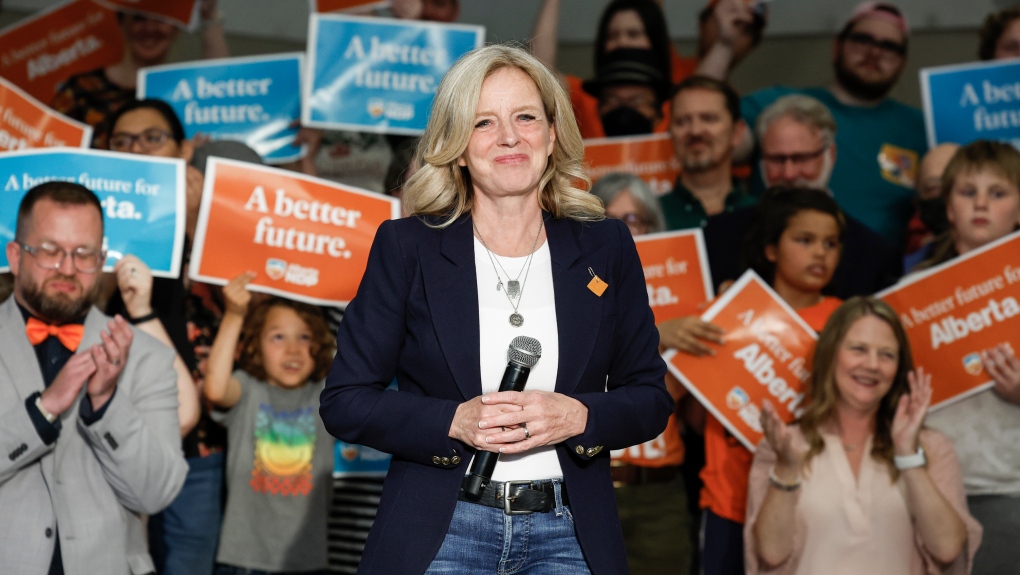
ALANNA SMITH
GLOBE AND MAIL
PUBLISHED MAY 13, 2023
.TODD KOROL/THE GLOBE AND MAIL
Hours before votes were tallied in the last two provincial elections, New Democratic Leader Rachel Notley stole a moment of calm on her best friend’s porch. In the neighbourhood of Old Strathcona, with hot tea in their hands, they sat in comfortable quiet or gossiped about the neighbours.
There was no talk of politics or what might happen that night – in 2015, a roaring victory; four years later, crushing defeat. Now, Ms. Notley is fighting to return to Alberta’s highest office, and she knows the odds aren’t on her side.
While polls for the May 29 election have the NDP and the United Conservative Party, led by Danielle Smith, within a razor-thin margin of one another, it’s almost unheard of, in any province, to be re-elected as premier after serving as the Official Opposition leader.Open this photo in gallery:
Hours before votes were tallied in the last two provincial elections, New Democratic Leader Rachel Notley stole a moment of calm on her best friend’s porch. In the neighbourhood of Old Strathcona, with hot tea in their hands, they sat in comfortable quiet or gossiped about the neighbours.
There was no talk of politics or what might happen that night – in 2015, a roaring victory; four years later, crushing defeat. Now, Ms. Notley is fighting to return to Alberta’s highest office, and she knows the odds aren’t on her side.
While polls for the May 29 election have the NDP and the United Conservative Party, led by Danielle Smith, within a razor-thin margin of one another, it’s almost unheard of, in any province, to be re-elected as premier after serving as the Official Opposition leader.Open this photo in gallery:
TODD KOROL/THE GLOBE AND MAIL
Political experts, however, say this election will not be won on policy but on a question of leadership. And Ms. Notley is the NDP’s best asset, often polling more popular than her party. She bites back at rivals who label her anti-pipeline or a puppet of her federal counterpart Jagmeet Singh and Liberal Prime Minister Justin Trudeau. “Look at my record,” she says time and time again – a record that includes accomplishing what no other Alberta leader has done since Ralph Klein resigned in 2006: serve a full term.
“The NDP’s capacity to offer up a leader who people have seen in government, who people have seen in Opposition, who people have seen in political life for 15 years – it does offer that predictability and stability that I think a lot of people are looking for,” she said.
Reflecting on past elections, Ms. Notley said the 2015 race against the Progressive Conservatives led by Jim Prentice focused on how each leader would shelter Alberta from a nosediving economy. After winning that election and governing through a tough four years in which the province experienced a prolonged dip on the resource roller coaster, the NDP was forced to, in her words, “play defence” in 2019. That contest was a sharp clash of personalities between the steady and likeable Ms. Notley and the political machine that was Jason Kenney.
But the contrast between leaders is even more profound this time, said Ms. Notley, who calls Ms. Smith a risky and unpredictable choice.
There’s also an intensity to this election that hasn’t been felt before, brought on by the devastation of the COVID-19 pandemic, a health care system in collapse and an increasingly divisive society, said Michele Jackson, who has been friends with Ms. Notley for 20 years and has served in a variety of roles for the provincial NDP for just as long.
She said it weighs on Ms. Notley – but is also the fuel that keeps the leader going.
A campaigner at heart, Ms. Notley knows how to stay grounded during the gruelling 28-day election crusade. She goes on a daily run – a habit that replaced smoking cigarettes in her 30s – listens to music or flips through pages of a book during her downtime (there’s not much)
“Head down. Get it done,” is how Ms. Notley tackles each day. “When you finally pull your head up again and look around, you’ll be very surprised by what you’ve been able to achieve.”
Ms. Notley, 59, was born in Edmonton but grew up in rural Alberta near Fairview, and worked as a labour lawyer before entering politics. Her dad, the late Grant Notley, was NDP leader for 16 years – a role she would take on in October, 2014, during her second term as an MLA.
During her rookie term, she was one of only two sitting members of the NDP. Ms. Notley told the Edmonton Journal that she drove then-leader Brian Mason “bananas” with questions on her first day. “He finally had to kick me out of the office to calm me down.”
Political experts, however, say this election will not be won on policy but on a question of leadership. And Ms. Notley is the NDP’s best asset, often polling more popular than her party. She bites back at rivals who label her anti-pipeline or a puppet of her federal counterpart Jagmeet Singh and Liberal Prime Minister Justin Trudeau. “Look at my record,” she says time and time again – a record that includes accomplishing what no other Alberta leader has done since Ralph Klein resigned in 2006: serve a full term.
“The NDP’s capacity to offer up a leader who people have seen in government, who people have seen in Opposition, who people have seen in political life for 15 years – it does offer that predictability and stability that I think a lot of people are looking for,” she said.
Reflecting on past elections, Ms. Notley said the 2015 race against the Progressive Conservatives led by Jim Prentice focused on how each leader would shelter Alberta from a nosediving economy. After winning that election and governing through a tough four years in which the province experienced a prolonged dip on the resource roller coaster, the NDP was forced to, in her words, “play defence” in 2019. That contest was a sharp clash of personalities between the steady and likeable Ms. Notley and the political machine that was Jason Kenney.
But the contrast between leaders is even more profound this time, said Ms. Notley, who calls Ms. Smith a risky and unpredictable choice.
There’s also an intensity to this election that hasn’t been felt before, brought on by the devastation of the COVID-19 pandemic, a health care system in collapse and an increasingly divisive society, said Michele Jackson, who has been friends with Ms. Notley for 20 years and has served in a variety of roles for the provincial NDP for just as long.
She said it weighs on Ms. Notley – but is also the fuel that keeps the leader going.
A campaigner at heart, Ms. Notley knows how to stay grounded during the gruelling 28-day election crusade. She goes on a daily run – a habit that replaced smoking cigarettes in her 30s – listens to music or flips through pages of a book during her downtime (there’s not much)
“Head down. Get it done,” is how Ms. Notley tackles each day. “When you finally pull your head up again and look around, you’ll be very surprised by what you’ve been able to achieve.”
Ms. Notley, 59, was born in Edmonton but grew up in rural Alberta near Fairview, and worked as a labour lawyer before entering politics. Her dad, the late Grant Notley, was NDP leader for 16 years – a role she would take on in October, 2014, during her second term as an MLA.
During her rookie term, she was one of only two sitting members of the NDP. Ms. Notley told the Edmonton Journal that she drove then-leader Brian Mason “bananas” with questions on her first day. “He finally had to kick me out of the office to calm me down.”
:format(jpeg)/cloudfront-us-east-1.images.arcpublishing.com/tgam/XLBIASEKSFEOVHHKQQ2ZIZUHLY.JPG)
Alberta NDP leader Rachel Notley is hitting the campaign trail hard in the last two weeks before the provincial election.
TODD KOROL/THE GLOBE AND MAIL
Ms. Notley was a natural at politics from the moment she was elected, said Ms. Jackson, who dismisses any notion that her adeptness was the product of growing up in a political household. “It was innate.”
Still, 15 years after Ms. Notley first took her seat in the Alberta Legislature, she says those nerves of the early days sometimes creep back in when she steps up to a podium to give a speech.
So what’s the trick to getting rid of those butterflies? Practice. And that is something she learned from her father.
“My dad, who was widely known as an exceptionally eloquent speaker, actually suffered from the same challenges and used to have to practise, practise, practise, practise for hours in front of a mirror,” Ms. Notley said.
“Get used to something, push yourself past your comfort zone, and then ultimately you can become comfortable.”
During Ms. Notley’s victory speech after becoming NDP Leader, she told Albertans they would need to choose between the past and the future in the next election. “Let’s not repeat history. Let’s make history,” she said. The NDP had just four seats going into the 2015 provincial race.
In the final week of that campaign, it became clear the party needed to plan a victory celebration, Ms. Jackson said. “Everyone’s flying in a million different directions trying to organize an event with all these people and Rachel’s going, ‘Holy crap – I’m going to be premier.’”
The NDP won a majority government with 53 seats, ending a 44-year Progressive Conservative dynasty and putting into power a left-leaning party for the first time in nearly 80 years.
Ms. Notley governed through a recession, roadblocks to pipeline development and slumping oil prices that wiped out tens of thousands of jobs. The NDP created a carbon tax, raised corporate income taxes and introduced farm safety legislation that brought tractor-led protests to the legislature. It also raised the minimum wage, piloted a $25-a-day daycare program and played an integral role in getting Ottawa to buy the Trans Mountain pipeline expansion.
But then came the 2019 election against the newly formed UCP. The NDP lost in a landslide, reduced to just 24 seats.
It was then that Ms. Notley contemplated hanging up her orange Fluevogs and leaving politics. It was Mr. Kenney that pulled her back, she said.
“If he hadn’t decided to demonize everybody who disagreed with him, then I may not have felt the need to stay. He got my back up.”
After four years in opposition, Ms. Notley now faces a tough task. In order to secure victory this time, she must attract not only undecided voters but conservatives who once supported her old rival.
She argues that Ms. Smith has abandoned the values of progressive conservatives and is deeply connected to the fringe elements of the conservative movement. And with a parade of old videos resurfacing – and Ms. Smith’s past statements haunting her campaign – it’s a message Ms. Notley hammers home whenever she can.
With a little more than two weeks left until election day, Ms. Notley said the focus is getting the word out to as many voters as possible.
Then, with the flurry of campaigning behind her once again, she will steal a few moments before polls close on her best friend’s porch, to await what’s to come.
Ms. Notley was a natural at politics from the moment she was elected, said Ms. Jackson, who dismisses any notion that her adeptness was the product of growing up in a political household. “It was innate.”
Still, 15 years after Ms. Notley first took her seat in the Alberta Legislature, she says those nerves of the early days sometimes creep back in when she steps up to a podium to give a speech.
So what’s the trick to getting rid of those butterflies? Practice. And that is something she learned from her father.
“My dad, who was widely known as an exceptionally eloquent speaker, actually suffered from the same challenges and used to have to practise, practise, practise, practise for hours in front of a mirror,” Ms. Notley said.
“Get used to something, push yourself past your comfort zone, and then ultimately you can become comfortable.”
During Ms. Notley’s victory speech after becoming NDP Leader, she told Albertans they would need to choose between the past and the future in the next election. “Let’s not repeat history. Let’s make history,” she said. The NDP had just four seats going into the 2015 provincial race.
In the final week of that campaign, it became clear the party needed to plan a victory celebration, Ms. Jackson said. “Everyone’s flying in a million different directions trying to organize an event with all these people and Rachel’s going, ‘Holy crap – I’m going to be premier.’”
The NDP won a majority government with 53 seats, ending a 44-year Progressive Conservative dynasty and putting into power a left-leaning party for the first time in nearly 80 years.
Ms. Notley governed through a recession, roadblocks to pipeline development and slumping oil prices that wiped out tens of thousands of jobs. The NDP created a carbon tax, raised corporate income taxes and introduced farm safety legislation that brought tractor-led protests to the legislature. It also raised the minimum wage, piloted a $25-a-day daycare program and played an integral role in getting Ottawa to buy the Trans Mountain pipeline expansion.
But then came the 2019 election against the newly formed UCP. The NDP lost in a landslide, reduced to just 24 seats.
It was then that Ms. Notley contemplated hanging up her orange Fluevogs and leaving politics. It was Mr. Kenney that pulled her back, she said.
“If he hadn’t decided to demonize everybody who disagreed with him, then I may not have felt the need to stay. He got my back up.”
After four years in opposition, Ms. Notley now faces a tough task. In order to secure victory this time, she must attract not only undecided voters but conservatives who once supported her old rival.
She argues that Ms. Smith has abandoned the values of progressive conservatives and is deeply connected to the fringe elements of the conservative movement. And with a parade of old videos resurfacing – and Ms. Smith’s past statements haunting her campaign – it’s a message Ms. Notley hammers home whenever she can.
With a little more than two weeks left until election day, Ms. Notley said the focus is getting the word out to as many voters as possible.
Then, with the flurry of campaigning behind her once again, she will steal a few moments before polls close on her best friend’s porch, to await what’s to come.
Naheed Nenshi
CTV
May 12, 2023
It must be hard to be a New Democrat in Alberta these days. With an election three weeks away, they have raised a historic amount of money. Their leader, Rachel Notley, is popular and widely admired. They have solid policy, including an economic plan written by the most well-known and respected economist in the province.
On the other side of the aisle, the premier, Danielle Smith, presides over a government that could be politely described as a train wreck. She was elected with barely half of the votes cast in her party’s selection. Even her most ardent supporters struggle to name any of her accomplishments, and her opponents have no end of scandals and failures to list. Smith struggles to form coherent answers on the questions on the minds of Albertans, and when she speaks off the cuff, she invariably has to apologize for her “imprecise language” (the less charitable might call it “lying”).
For example, at a recent Calgary Economic Development event, both Smith and Notley were asked what their plans were for the revitalization of downtown Calgary. Notley responded with her plans to create a new post-secondary campus, highlighted what her government did when they were in power, and pledged to match the City of Calgary’s funding for office conversions – long the largest ask from the mayor and council.
CTV
May 12, 2023
It must be hard to be a New Democrat in Alberta these days. With an election three weeks away, they have raised a historic amount of money. Their leader, Rachel Notley, is popular and widely admired. They have solid policy, including an economic plan written by the most well-known and respected economist in the province.
On the other side of the aisle, the premier, Danielle Smith, presides over a government that could be politely described as a train wreck. She was elected with barely half of the votes cast in her party’s selection. Even her most ardent supporters struggle to name any of her accomplishments, and her opponents have no end of scandals and failures to list. Smith struggles to form coherent answers on the questions on the minds of Albertans, and when she speaks off the cuff, she invariably has to apologize for her “imprecise language” (the less charitable might call it “lying”).
For example, at a recent Calgary Economic Development event, both Smith and Notley were asked what their plans were for the revitalization of downtown Calgary. Notley responded with her plans to create a new post-secondary campus, highlighted what her government did when they were in power, and pledged to match the City of Calgary’s funding for office conversions – long the largest ask from the mayor and council.
Smith, for her part, started by talking about highways and rural Wheatland County, before eventually circling back to her government’s plan on addiction recovery (which is admittedly quite good, though it’s not clear whether they will force unwilling people into mandatory addiction treatment).
She finally achieved some applause from the business crowd when she scooped herself and pledged government support to a new arena, which she announced to great fanfare the following week (though it’s far from clear this is a slam dunk -- support for public funding remains tenuous, and Smith again spoke too much when she implied that this was all the funding Calgary would get for downtown revitalization).
Given all of this, one would expect that the NDP would be far ahead in the race, and that Notley would be wondering how much Jason Kenney and Smith have renovated her old office.
Instead, every poll has the NDP only slightly ahead, but their vote is relatively inefficient and there is a bit of historical gerrymandering in favour of rural and small-city Alberta (this isn’t as bad as city-dwellers sometimes believe – Calgary and Edmonton account for about 58% of the population and 52% of the seats, but this could make a difference in a very close election). Most commentators, therefore, give Smith and her United Conservatives a small edge as the election kicks into high gear.
How is this possible?
Some credit goes to Smith herself. For all her faults, she is an appealing communicator with an effortless style, honed through many years in front of microphones and cameras. She has tried for a Ralph Klein vibe, admitting she’s not perfect and that she’s learning on the job.
Part of it has to do with the increasing hardening of Conservative parties across Canada and around the world. They have been able to activate a group of people who didn’t traditionally vote in large numbers: those who are skeptical of government and who welcome angry attacks on institutions. In short, they are happy to burn it down rather than build it up. Since 2015 or so, activists have done a great job turning on people who are typically skeptical of all government and never vote, turning them into dedicated voters. Any glance at political Twitter shows that these folks, while a minority, speak with a loud voice.
Part of this is the NDP’s own fault. While they have worked very hard to court Calgary voters, it’s not clear what, if anything, they have done since their defeat in 2019 (some would argue since their victory in 2015) to work with rural voters or those in the mid-sized cities. For example, they won both seats in Red Deer in 2015 on a vote split, and the two current UCP MLAs are the widely disliked minister of education -- and a maverick MLA from the party’s right flank with a habit of saying strange things and travelling when he shouldn’t. Nonetheless, if the NDP has been doing ground-level work to shore up their support there, I haven’t seen it and every commentator puts those seats out of reach for them.
The most important factor, though, is electoral history and the electorate’s tolerance for many shenanigans from Conservative politicians. Conservative parties of one stripe or another have ruled Alberta for all but four of the last 72 years, and the 44-year reign of the Progressive Conservatives is instructive. Peter Lougheed built a giant tent, and most issues were settled behind closed doors, within the party caucus. To put it in modern national terms, the PC party would have included both Pierre Poilievre and Chrystia Freeland, with Lougheed himself firmly on the party’s progressive side.
In the early 2000s, the more right-wing members of the party formed the Wildrose Alliance, which was led in its heyday by Danielle Smith. Rather than accept this and attempt to target the majority of Albertans, who identify as centrists, the PC party longed to bring its erstwhile relatives home, despite much advice telling them that the Wildrose was a handy closet in which to keep their more extreme cousins. Former Premier Jim Prentice, although well ahead in the polls at the time, convinced Smith and the majority of her caucus to cross the floor, with disastrous results and an election loss to the NDP.
Jason Kenney then returned from Ottawa to orchestrate a grand family reunion, which turned out to be a de facto takeover of the PC party by the more radical Wildrose elements. One would think Lougheed would not be comfortable, and maybe not be welcome, in this version of his party.
Through all of this, Albertans remained forgiving. Successive PC governments, with all their foibles and quirks, were generally pretty competent, and the wealth of the province covered up a lot of errors. Alberta was by far the wealthiest province, with the lowest taxes (albeit with the highest provincial spending per capita, thanks to oil and gas revenues). Quality of life remains extraordinarily high, and public services are as good as anywhere else in Canada for the most part.
So, Albertans have been very tolerant of foibles and missteps, as long as they received competent government. Smith, despite showing few signs of competence, benefits from this halo of history. Even when a recording surfaced of her making odious comparisons of vaccinated people with Hitler supporters, and saying she was boycotting wearing a poppy as a result (no, it makes no sense; just bear with me), the national B’nai Brith and Royal Canadian Legion strongly condemned her comments. The local Calgary Jewish community, for its part, issued only a mild statement suggesting they didn’t want to become a political wedge.

Alberta NDP Leader Rachel Notley attends a campaign rally in Calgary, Alta.,
Thursday, May 11, 2023. Albertans go to the polls on May 29.
THE CANADIAN PRESS/Jeff McIntosh
And that’s Notley’s problem, and likely her largest frustration. She must be perfect. She must run the table in every competitive riding to have a chance of winning government. She can’t afford a single stumble. Smith, on the other hand, merely has to be good enough. She doesn’t have to talk about how she’ll make things better, only that she won’t make them worse.
Albertans have a chance on May 29 to break a habit, to tell the Conservatives that they have to earn their votes, that they have to stop speaking only to the radical fringe. A number of prominent conservatives, including a former deputy premier, have called upon Albertans to put their party in the penalty box for a while, even to “lend” their vote to Notley and the NDP. We’ll see if citizens take on that challenge or if they settle for good enough.
And that’s Notley’s problem, and likely her largest frustration. She must be perfect. She must run the table in every competitive riding to have a chance of winning government. She can’t afford a single stumble. Smith, on the other hand, merely has to be good enough. She doesn’t have to talk about how she’ll make things better, only that she won’t make them worse.
Albertans have a chance on May 29 to break a habit, to tell the Conservatives that they have to earn their votes, that they have to stop speaking only to the radical fringe. A number of prominent conservatives, including a former deputy premier, have called upon Albertans to put their party in the penalty box for a while, even to “lend” their vote to Notley and the NDP. We’ll see if citizens take on that challenge or if they settle for good enough.
RELATED STORIES
Naheed Nenshi: Danielle Smith has surpassed all expectations. Not in a good way.
Don Martin: In the battle for Alberta, it's Smith versus her mouth
United Conservatives promising 25 per cent seniors discount for some services
Alberta NDP says newly uncovered video of Smith concerning for public hospitals
Smith says it's time to move on from pandemic after COVID-Nazi comments surface
Naheed Nenshi: A moment that changed the fabric of this country forever
Don Martin: In the battle for Alberta, it's Smith versus her mouth
United Conservatives promising 25 per cent seniors discount for some services
Alberta NDP says newly uncovered video of Smith concerning for public hospitals
Smith says it's time to move on from pandemic after COVID-Nazi comments surface
Naheed Nenshi: A moment that changed the fabric of this country forever
/https://www.thestar.com/content/dam/thestar/opinion/contributors/2023/05/16/would-premier-notley-be-friend-or-foe-to-justin-trudeau-and-jagmeet-singh/rachel_notley.jpg)
:format(jpeg)/cloudfront-us-east-1.images.arcpublishing.com/tgam/JOV5U2JFVJDXTPINXDHIA4NAOM.JPG)
:format(jpeg)/cloudfront-us-east-1.images.arcpublishing.com/tgam/KGIBKDD2V5C4BJLLMDHRDYIAME.JPG)






